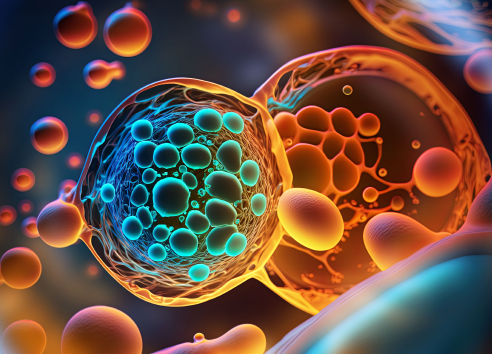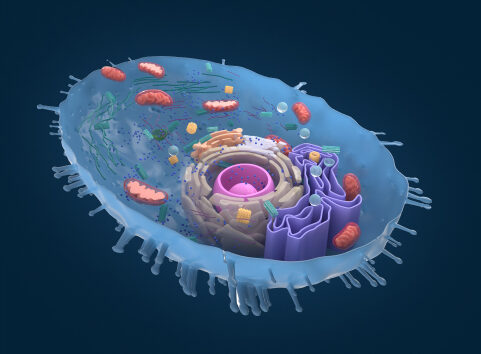Zhao
Laboratory
Why study lipids?
Complex membrane lipids are fundamental cellular building blocks. Consider their amphipathic nature for instance, the hydrophobicity of the head group and the hydrophilic property of the fatty acid side chains enable lipid species to self-organize. This then leads to the compartmentalization of cellular content from the outside world, and the formation of the very first cell. It is not an overstatement to say that without lipids, there will be no life as we know it.
How much do we know about lipids? We have made tremendous progress in unveiling their incredibly intricate and diverse chemical structures. But the functional contribution of complex lipid species in biological processes remains largely unexplored and underappreciated. Given that the dysregulation of complex lipids are implicated in metabolic, cardiovascular and neurodegenerative diseases, we set out our research projects to uncover the molecular basis of complex lipids in regulating cellular function and organismal health during normal physiology, aging and age-related diseases.
Functional regulation of lipid composition during neural stem cell aging
We use mouse neural stem cells, a regenerative cell type in the brain, as a model in our investigation. We want to study the underlying molecular mechanisms of how complex lipids regulate cellular processes, and contribute to the functional decline during aging. Specifically, how does the composition shifts in phospholipids and sphingolipids fatty acyl side chains affect cellular function during aging. Furthermore, what are the molecular targets that regulate lipid composition-mediated impact on neural stem cell aging.

Organelle-specific lipid regulation during aging

Complex lipids in systems metabolism
Complex lipids are ubiquitous, abundant and undergo dynamic remodeling in response to different cellular and systemic conditions. These characteristics make complex lipids uniquely positioned as a key class of molecule in systems physiology. We want to probe into the ways by which complex lipids may be engaged in contributing to tissue-tissue communication through the lens of systems metabolism. Our work will reveal novel insight into the systemic contribution of complex lipids in normal physiology, aging and diseases.

Technology development

We believe technology is empowering in all areas of biomedical research, especially in this new frontier of lipid biology. We will continue to apply the latest technology to overcome technical limitations in addressing biological questions. We will also develop new mass spectrometry-based technologies for identifying and tracing tissue-specific lipid metabolites in studying their systemic effects on tissue and organismal health.